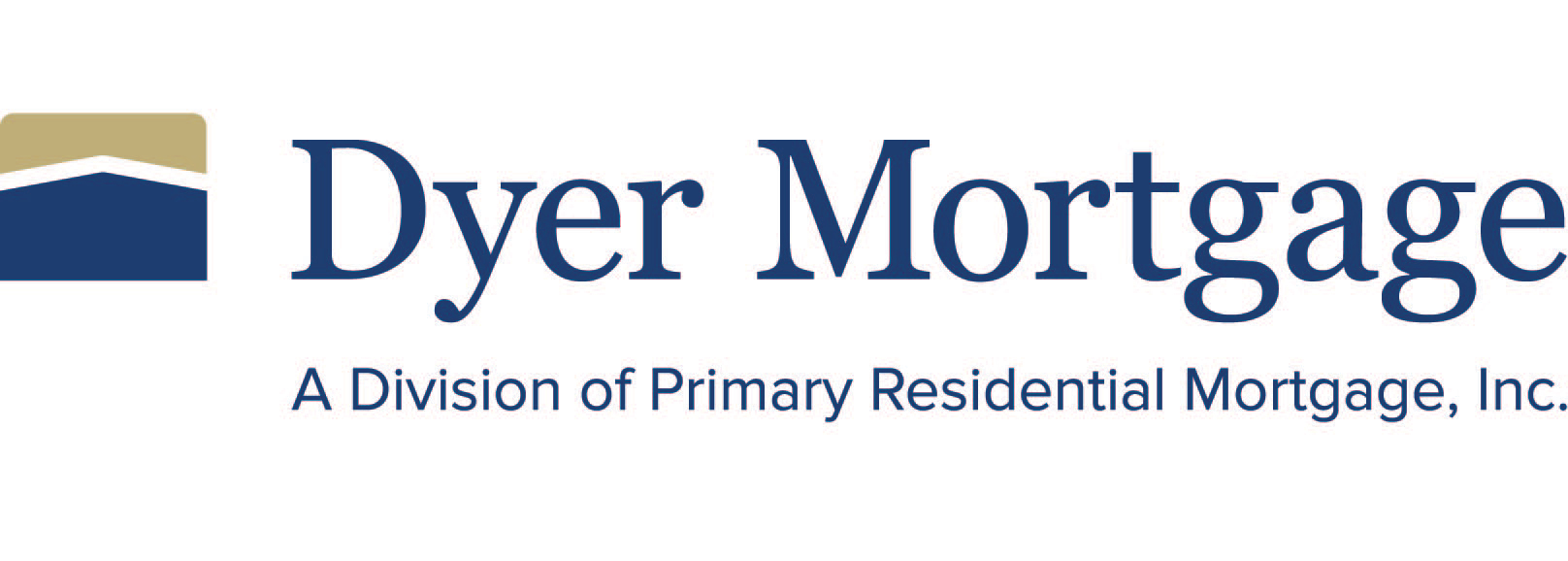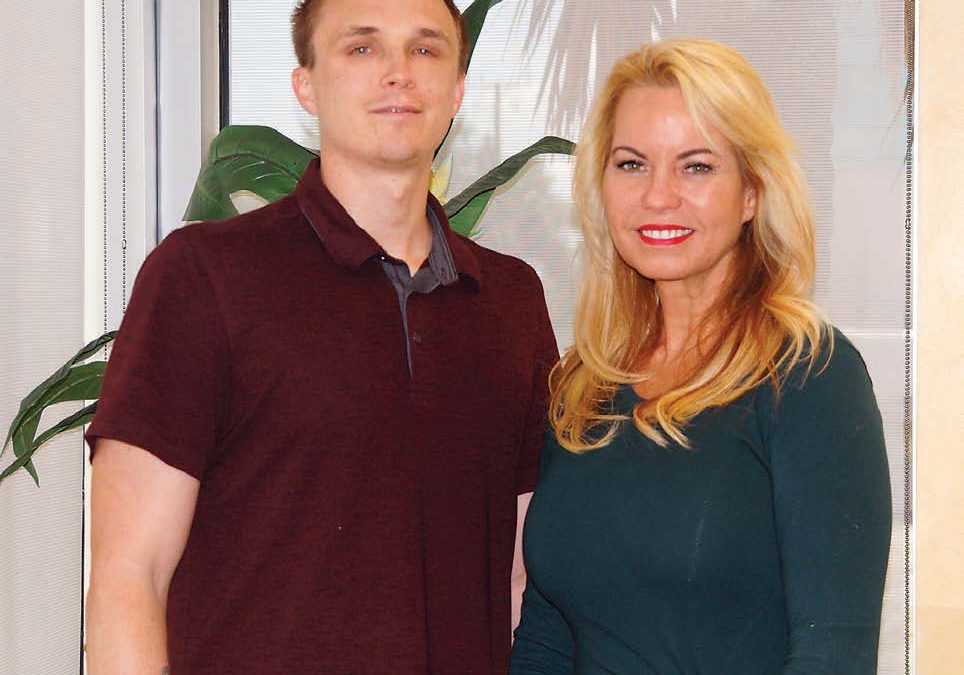Record Low Interest Rates Power Dyer Mortgage as Buyers Stampede Market


Mortgage lenders are seeing some of their best production in years, thanks to record–low interest rates and unwavering consumer demand for the purchase of single-family homes and condominiums. The attractive rates have sent homeowners into a borrowing binge.
Mortgage rates loosely follow the yield on the 10–year U.S. Treasury. The yield on a 10–year Treasury bill represents the return an investor will receive by holding the bond for 10 years.
“I have worked in the mortgage industry for 32 years and I have never seen mortgage rates start with a ‘2.’ I just did a mortgage for a customer and it was 2.12 percent for a 15–year fixed–rate loan,” said businesswoman Bobbie Dyer, owner of Dyer Mortgage Group in Melbourne.
“Even the interest rates for 30–year loans right now are in the 2s – 2.37 and 2.7 percent. And those loans are eligible for both Federal Housing Administration and Veterans Administration financing. So, people who may not have perfect credit – a 640 to 650 credit score, for instance – can still get an interest rate in the 2s,” she added.
If rates hold steady, the real–estate market in 2021 should continue to see strong activity. Many economists predict that mortgage interest rates will stay below the 3 percent threshold next year.
The Mortgage Bankers Association forecasts that mortgage rates could rise in the year to come, but that they will remain “near all–time lows.”
That organization forecasts mortgage originations to total $3.1 trillion in 2020 – the closest since 2003’s high of $3.8 trillion. In 2021, mortgage originations are expected to come in at $2.4 trillion, which would still be the second highest total in the past 15 years.
Low mortgage rates are making it easier for Americans to afford homes even as property prices increase. “Now is especially a good time for move–up buyers in the housing market,” said Dyer.
In mid–July, when mortgage rates fell below 3 percent for the first time, it required 19.8 percent of the median monthly income to make the mortgage payment on the average–priced home purchase, assuming a 20 percent down payment and a 30–year mortgage, according to Black Knight Data & Analytics.
That was more than 5 percent below the average of 25 percent during the period from 1995–2003. Buying power is up 10 percent year–over–year, meaning the average homebuyer can afford nearly $32,000 more home than they could at the same time last year, while keeping the monthly payment the same.
Across the country, some areas are seeing their strongest affordability levels in more than a decade. Falling rates have also driven record levels of refinance activity.
The Dyer Mortgage team includes military veteran Joey Long, the marketing and technology manager.
In 2018, Long joined the Air National Guard, a federal military reserve unit of the U.S. Air Force. National Guard recruits attend basic military training, as well as technical school for their chosen career, alongside active duty U.S. Air Force enlistees. He always has his gear packed and ready for the next assignment.
“After graduating from technical school, I was deployed to Iraq,” said Long, who graduated in the top 10 percent of his class. “I was in Iraq for six months working in communications. My base is in Tampa. I report to MacDill Air Force Base once a month. I do drills at MacDill. Then I come back and work for Dyer Mortgage, which I greatly enjoy.”
“When Joey was in Iraq, he remained a part–time employee at our firm,” said Dyer. “He kept his seniority, 401(k) and everything else. It was important to support Joey’s military career, even though we missed him greatly in the office.”
When Long was thinking about joining the Air National Guard, he talked to Dyer about it.
“I told him we would support his decision 100 percent and do whatever we needed to do to help keep his position. He’s been deployed twice — once for six months and once for nine months. We are extremely proud of him,” said Dyer.
Long has been able to do some work for Dyer Mortgage in his off time while serving.
“Sometimes they needed help with the website. I helped Bobbie and her team as much as I could. I admire her for holding my position while I served and for everything that she has done to help me. Dyer Mortgage is pretty much like a family.”
The many small businesses like Dyer Mortgage play an instrumental role in the local economy.
“I have 13 employees,” said Dyer. “If I don’t keep them employed, they are not going to be shopping at area stores, visiting local restaurants and supporting the local economy. I’ve been screaming at the top of my lungs for the last five years about doing business locally, and not sending your dollars out of town.”
When people buy from independent, locally owned businesses, a significantly greater portion of their money is then cycled back through the community, she says.
“In the mortgage industry, the big companies might have more marketing, sizzle, and fancy commercials, but when you peel all the layers of the onion back, the cost is usually the same,” said Dyer. “However, there are benefits working with a local firm like Dyer Mortgage. We educate the customer about local taxes. We educate the customer about flood insurance. We educate the customer about homestead portability and how that makes a difference. When consumers buy local, the dollars stay here and support area businesses. It benefits the community. A strong community means you have more people employed, and more people employed means more consumers will be buying goods and services. It all makes for more successful local businesses.”
One market niche for Dyer Mortgage is working closely with area builders and developers of new condominiums. That market is growing with new projects, but financing for condominiums can be difficult. Buyers must have the credentials to qualify for a home loan personally, and the condominium project itself must undergo approval for mortgage lending.
The good news is Fannie Mae, one the two large entities responsible for underwriting most of the conventional loans in America, has made the process easier.
“There are a lot of condominiums being built in Brevard County. If you are looking to buy a new condominium, it’s important to know how you can secure financing because generally traditional financing is not available until the developer has sold the units and the homeowners association is in control,” said Dyer.
“Fannie Mae has mortgage financing rules for new condominiums nationwide. There is one set of rules for 49 states, and Florida has a completely different set of rules. Florida’s rules are more restrictive. We’ve been working with developers and builders to get their condominium projects Fannie Mae approved so the units can be available for traditional financing, with rates currently starting in the 2s,” she said.
Her mortgage company has worked with multiple builders in the county on new condominium developments, handling the finance packages and all the documents.
“We have completed three projects and we have three more in the works that we will be starting with closings in the next 90 days. It’s a fantastic way for the developer to have a complete financing package ready for the customer. The customer doesn’t have to raise cash to purchase a new condominium. And it’s great for the builder because they can sell the units faster. Most of the condominiums we are involved with are either riverfront or waterfront,” said Dyer.
Look for condominium conversions to also hit the market. In the early 2000s, real–estate developers around the nation were busy purchasing apartment buildings and converting the units to condominiums to cash in on fast rising home prices supported by low interest rates.
Today, “condo conversions” are making a comeback in certain areas of the nation. The demand for residential ownership is ratcheting up and creating opportunities for developers to convert apartments to condos.
Dyer Mortgage is involved in several of these conversions, locally and out of the area. One 42–unit apartment building is in Tampa. A developer purchased the 15-year-old complex and is converting it to condominiums.
Dyer has experience as a mortgage lender in a number of condominium conversions, including sizable projects in Viera.
“We have not seen a condominium conversion locally in probably more than a decade, but I think that trend will be coming back because it can play a role in affordable housing in communities,” she said.
“The developer of that project also owns property in Brevard and I was involved in three condominium conversions for that developer in 2005–07,” said Dyer. “The 42 units in Tampa range in price from $230,000 to $270,000, so they are affordable.”
She continued, “Not only are we getting the project Fannie Mae approved for conventional financing, but we’re also getting it FHA and VA approved. People can buy with no money down. They get a home and own it for less than rent, which is attractive. These types of conversions provide nice affordable housing for people. The developers that do the conversions upgrade the units considerably.”
Apartment rental rates have roughly doubled over the last 10 years. “Owning is not for everybody, but if you are going to stay in an area, it might be better to own. You are investing in a property. And there are advantages, including tax deductions,” she said.
Titusville and DeLand had the lowest average monthly apartment rental rate in the entire state, at $876 and $877, respectively, while Coral Gables had the highest, at $2,628, according to a RentCafe report using data from Yardi Matrix. The average rent among 30 Central Florida municipalities included in the report is $1,241. The national average is $1,476.
An important part of Dyer Mortgage’s business model is community service and helping charitable organizations in the region.
“Our employees get 12 hours a year of paid time off to do any charitable work of their choosing. They volunteer at schools, at churches and with other organizations,” she said. “As a company, we also work with Habitat for Humanity of Brevard. We helped build a Habitat home last year.”
Dyer herself is a Florida Tech Board of Trustees member. She and Dyer Mortgage recently pledged $50,000 to the private Melbourne university — $10,000 per year for five years. The first donation has been made. The money will be used to provide free mental–health counseling and affiliated services for Florida Tech students.
“The $50,000 pledge is in honor of my son Spencer, who passed away last year. A lot of the things we are doing at Florida Tech in the mental–health field are revolutionary,” she said.
One day, Dyer said she walked around the Florida Tech campus and casually interviewed about 30 students. “I took my nametag off so they wouldn’t know who I was. I acted like a nosy mother. I said, ‘Can I ask you a question? ‘What is the No. 1 thing as a student that causes you to start feeling anxious?’ The students said the start of the school year and testing week.”
Dyer added, “We are going to do everything we can at the university to help lower their stress levels. I talked to Dr. Dwayne McKay (Florida Tech president) and the Board of Trustees and they could not be more supportive of this mental–health initiative. Florida Tech is amazing.” Her son, Spencer Hertrich Pacheco, died last year. He was 28 years old. “He was proud of his Portuguese heritage,” said Dyer.
He grew up in Satellite Beach. For the first semester of his senior year at Satellite High School, Spencer elected to study in Porto, Portugal, as an Exchange student. During his four–month stay he graduated from language school and attended a local high as a normal student. Spencer volunteered to work in Brazil for nearly a month to teach children English and help build a school, said Dyer.
“He loved history and soccer (and attended Eastern Florida State College with the goal of becoming a history professor). We traveled to the Rio Olympics to see the Gold Medal match for both the women’s competition and the men’s competition. That was the best vacation of our lives. I’m glad I had that experience with him before he passed. Spencer had struggled with mental health issues for years. That’s why it’s important to me and my business to reach out and try to help other young people who are having mental–health challenges. We want to get out in front of this and keep students in the prevention zone.” Dyer Mortgage is looking to close out the year with a flurry of homebuyer activity. Dyer said the mix of condominium buyers includes relocation customers, people
buying second homes, and local residents wanting a waterfront property. “Florida’s housing market is seeing buyers coming here especially from the northeast, but other areas too.”
A new analysis of online state–to–state home searches provides insight on U.S. migration patterns, and Florida appears to be attracting many more new residents than it could lose to out–migration, according to the Redfin Data Center. Nearly 22,000 more website users looked to move into Florida than out in the third quarter, almost twice as many entrants as the third quarter of 2019, and the highest net inflow for the state since Redfin started tracking migration more than a decade ago. Movement into Florida has accelerated since the beginning of the year.
Recently, “U.S. News & World Report” unveiled its 2020–2021 “Best Places to Live” rankings and “Best Places to Retire” in the United States. The new lists evaluate the country’s 150 most populous metropolitan areas based on affordability, job prospects, and desirability.
Florida metro areas stood out on both lists. In the Best Places to Retire category, Florida metro areas hold seven of the top 10 spots. Melbourne is No. 10 on the list. In the Best Places to Live rankings, Melbourne is No. 28. A common feature among many of the top 25 Best Places to Live is the prominence of engineering and technology as a choice career field for many.
The 2020–2021 Best Places to Live were determined based on a methodology that factors in job market, housing affordability, quality of life, desirability, and net–migration ratings. They were determined in part using a public survey of thousands of individuals throughout the nation to find out what qualities they considered important in a place to live.
“I’m sure Brevard County will see its share of homebuyers in 2021. Brevard is an appealing county, and more people are discovering it every year,” said Dyer.
Published in the Brevard Business News by Ken Datzman

